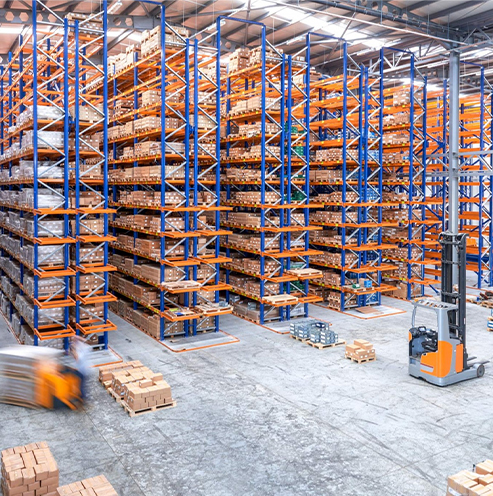Eco-Friendly Toilet Paper for Sustainable Backpacking Adventures
Embracing Sustainability The Benefits of Biodegradable Toilet Paper for Backpacking
As the outdoor adventure culture continues to flourish, backpackers are increasingly seeking ways to minimize their environmental footprint. One essential yet often overlooked item is toilet paper. Traditional toilet paper, while convenient, poses significant environmental challenges. Fortunately, biodegradable toilet paper offers an eco-friendly alternative that aligns with the principles of sustainable camping. This article explores the benefits of biodegradable toilet paper for backpackers and how it can enhance your outdoor experience.
The Environmental Impact of Traditional Toilet Paper
Before diving into the advantages of biodegradable options, it's important to understand the environmental implications of traditional toilet paper. Most conventional toilet papers are made from virgin wood pulp, which contributes to deforestation and habitat loss. Moreover, the production process involves harmful chemicals and results in significant water waste. When hikers improperly dispose of traditional toilet paper, it can take years to decompose, leading to pollution and negative impacts on wildlife.
What is Biodegradable Toilet Paper?
Biodegradable toilet paper is crafted from materials that break down naturally and quickly in the environment, such as recycled paper or bamboo. These materials are designed to decompose within a few weeks, making them a more sustainable choice for outdoor enthusiasts. The manufacturing process typically uses fewer resources and less energy compared to traditional toilet paper production, further reducing the environmental impact.
Benefits of Biodegradable Toilet Paper for Backpackers
1. Eco-Friendliness The most significant advantage of biodegradable toilet paper is its minimal impact on the environment. Backpackers can use it with peace of mind, knowing that they are not contributing to deforestation or pollution. By opting for biodegradable options, they can help preserve the natural beauty of the wilderness.
2. Lightweight and Compact Most biodegradable toilet papers are designed with backpackers in mind. They are often lightweight and compact, making them easy to pack without adding unnecessary weight to your gear. This is particularly important when you need to optimize your backpack for long hikes.
biodegradable toilet paper backpacking

3. Rapid Decomposition In remote areas, traditional toilet paper can linger for years, causing visual pollution and posing a risk to wildlife. Biodegradable toilet paper, in contrast, breaks down quickly, allowing it to blend into the natural environment without harmful effects.
4. Safe for Wildlife Traditional toilet paper can pose a choking hazard to animals that might ingest it. Biodegradable options, especially those made from organic materials, decompose into non-toxic components, making them a safer choice for wildlife interaction.
5. Convenience Many brands of biodegradable toilet paper are soft and absorbent, providing the same level of comfort as traditional options. There’s no need to sacrifice quality for sustainability.
6. Easy Disposal When backpacking, waste disposal can be a concern. Biodegradable toilet paper can often be buried in a small hole (following Leave No Trace principles) or packed out, making it easier to deal with while still protecting the environment.
How to Choose the Right Biodegradable Toilet Paper
When selecting biodegradable toilet paper for your backpacking trips, look for products that explicitly state they are biodegradable or made from sustainable materials like bamboo or recycled paper. Check for certifications, such as FSC (Forest Stewardship Council) certification, indicating responsible sourcing practices.
Conclusion
As the movement toward sustainability gains momentum, backpackers have a unique opportunity to make environmentally conscious choices in their everyday gear. By adopting biodegradable toilet paper, outdoor enthusiasts can preserve the pristine beauty of nature while enjoying their adventures. With countless benefits, this simple switch not only enhances your experience but also contributes to protecting our planet for future generations. As you plan your next adventure, consider the impact of your choices – every small step toward sustainability counts.
-
The Best Uses for Small Trash Bags in Daily LifeNewsJul.01,2025
-
Stylish Reusable Grocery Bags TrendsNewsJul.01,2025
-
Shipping Advantages of Using Bubble Envelopes BulkNewsJul.01,2025
-
How Compostable Mailing Bags Reduce Environmental ImpactNewsJul.01,2025
-
Environmentally - Friendly Bulk Poly MailersNewsJul.01,2025
-
Eco Friendly Custom Laminated Tote BagsNewsJul.01,2025
-
Have the freedom of customizing your custom mailers any way you want! Our dedicated packaging support will help deliver you the mailing experience you need to elevate your shipping experience to the next level! Start making a strong impression on your customers and stand out from your competitors! -
LIYA uses high quality raw materials which directly purchased from large enterprises domestic and overseas such as PetroChina, Sinopec, Sabic, Equate, ExxonMobil, Dow Chemical, Total, and Borouge, ensuring the price advantage and quality of the raw materials. -
LIYA uses high quality raw materials which directly purchased from large enterprises domestic and overseas such as PetroChina, Sinopec, Sabic, Equate, ExxonMobil, Dow Chemical, Total, and Borouge, ensuring the price advantage and quality of the raw materials.





